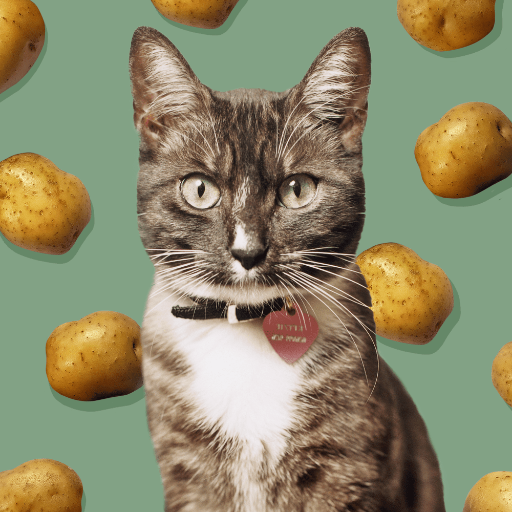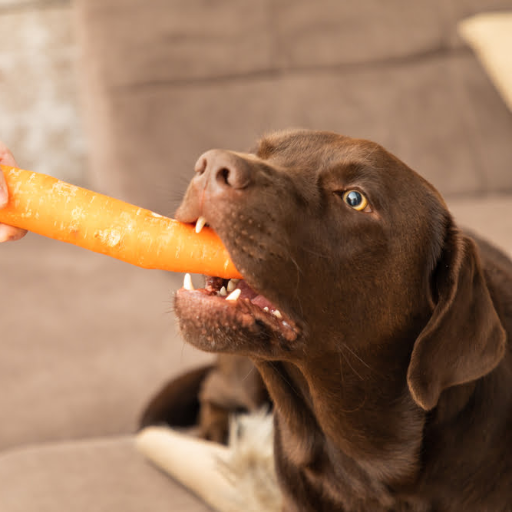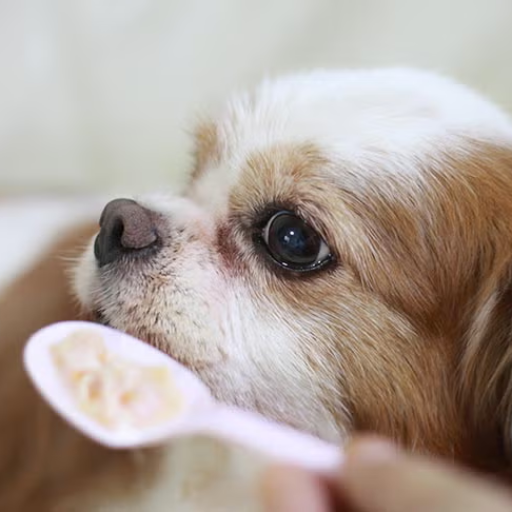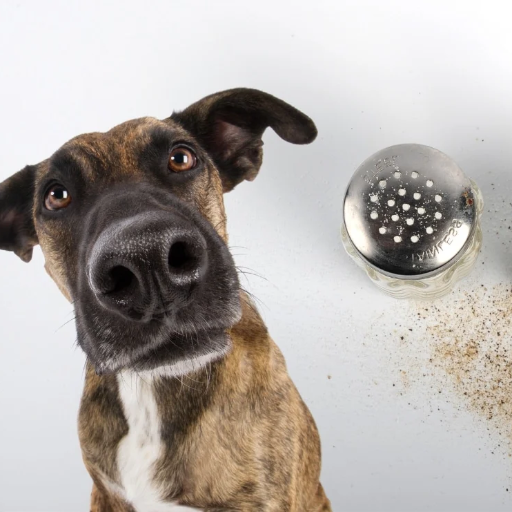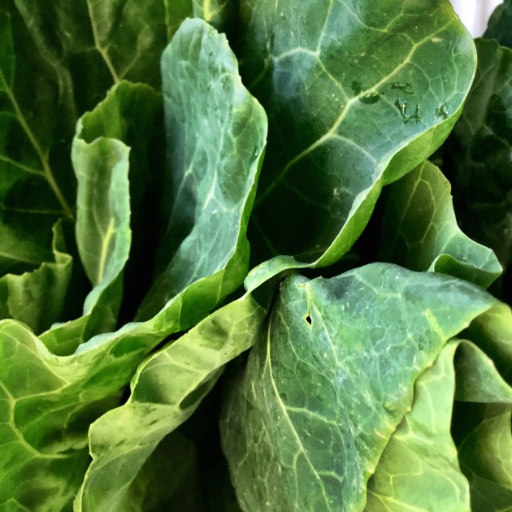As a caring cat parent, you might be considering what everyday foods you can safely give to your kitty. One question that arises is, “can cats eat potatoes?” Potatoes are a common household food but how calorie enriched they are is not always clear. In this article, we will analyze, if cats can eat potatoes, along with their potential advantages and disadvantages, focusing on why preparation methods are crucial. Whether you are new to cat parenting or just trying to enhance your cat dietary education, this article has everything you’re looking for. Stick with us till the end and we’ll explain the whole thing about cats and potatoes.
Are Potatoes Safe for Cats to Eat?
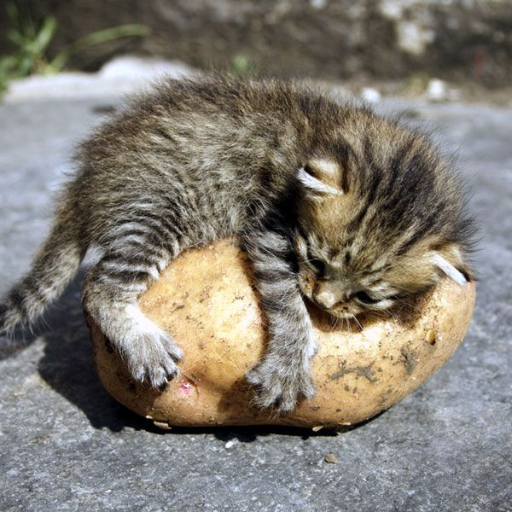
Certainly, cats can eat cooked potatoes, but only as an occasional treat and to a limited degree. Seasoned, fried, or boiled potatoes are not suitable for cats. The same goes for potatoes and any of their green parts, which are often toxic due to containing solanine–a compound that is harmful to cats and may lead to digestive as well as other health problems. Always monitor your felines when they’re eating to make sure your cats don’t develop bad eating habits.
Potato Safety for Cats
Boiled and baked potatoes that are prepared correctly can also be an occasional treat for cats. However, cats should not be permanently given potato treats as cats will get used to them quickly. Potatoes should not and must never be overcooked and should remain plain, unseasoned and undressed. Unlike dogs, cats should not be onions, garlic, salt or any other weird season food.
From a nutritional standpoint, potatoes are mostly carbohydrates, which provide little benefit for cats since they are strict carnivores that obtain protein primarily from animal sources. Having too many carbohydrates in their diet may also cause weight gain or digestive problems. Treats in the form of potatoes should not exceed 10% of a cat’s caloric intake. To put this into perspective, an average-sized adult cat needs around 200-300 calories a day. Thus, treats, including potatoes, should not surpass 20-30 calories.
Always pay attention to how your cat reacts to new foods a few days into the food change. In case of any discomfort like vomiting, diarrhea, or lethargy, stop feeding those foods and see a veterinarian. While the occasional snack of cooked potatoes is fine, they should never replace nutritionally balanced cat food formulated to meet your pet’s dietary requirements.
Are Raw Potatoes Toxic to Cats?
Yes, cats are toxic to cats because of a natural compound called solanine which is found in raw potatoes. This substance can lead to serious health concerns in cats, such as gastrointestinal problems, lethargy, and confusion. Even small amounts of raw potatoes are harmful for cats.
Data shows there are symptoms such as vomiting and diarrhea that may be caused due to solanine poisoning. In severe cases, cats can struggle with trembling or even seizures. These effects are not exclusive to felines as dogs and humans are also at risk if large amounts of solanine-rich foods are consumed.
Potatoes should be stored in dark and cool places to avoid exposure to green and sprouting potatoes to prevent the cat from being exposed to solanine. Potatoes and their peels should be stored out of cat’s reach to avoid potential harmful contact. If there’s any indication for your cat to be poisoned, or suspecting raw potatoes are eaten, it’s best to contact a veterinarian. Keeping your pet void of any potential risks is the safes approach for any pet owner.
What Of Potato Skins?
I always steer clear from giving my cat potato skins, particularly the raw form. While the cooked variant in little portions isn’t overtly damaging, it can still be hard for cats to digest and might have some solanine, which is poisonous. Just to be safe, I make sure to keep parts of potatoes, including skins, away from my pet.
Is Sweet Potato a Good Option for Cats?

Sweet potato can be an occasional snack for cats, as it does not pose any danger to their health. It does contain some vitamins and fiber. Just like feeding cats any other human food, the sweet potato should be boiled without any seasonings, oils, or butters. Always consult your veterinarian prior to making any dietary changes for your feline friend.
Can Cats Eat Sweet Potatoes?
Moderation is key when feeding cats sweet potatoes, and it is critical to remember the points outlined above. If properly cooked, sweet potatoes can serve as an infrequent snack. The vitamins A, C, B6, potassium, and manganese found in sweet potato do make it nutritious, but still not necessary in a cat’s diet. Domesticated cats primarily thrive on protein since they are obligate carnivores.
Your furry feline companion will only be able to enjoy sweet potatoes if they are well cooked. This is because sweet potatoes are hard for cats to breakdown which could lead to Stomach Problems. Remember that sugar, oils, butter and any additional seasonings should not be added as they are harmful to your cat’s health.
According to veterinarians, a sweet potato can only be fed to cats in moderation. This is because sweet potatoes should not make up more than 10% of a cat’s daily caloric count. It is well known the average domestic cat requires 200 calories in a day which means only 20 calories should come from treats like sweet potatoes. A single serving of plain cooked sweet potatoes contains around 8-10 calories which means it can be given when moderation.
Lastly it is important to always keep an eye on your cat for any negative changes after consuming food like sweet potatoes. In case any strange symptoms arise it is better to stop feeding them and visit a vet without any delay.
Benefits of Feeding Sweet Potatoes to Your Cat
Looking for ways to spice up your cat’s meals? Feeding your four-legged best friend sweet potatoes can have some benefits. Sweet potatoes may help reduce hairballs since they are a good source of dietary fiber. They also contain essential vitamins and minerals such as vitamin A and C, potassium, and manganese which can contribute to your cat’s health.
As per USDA data, a serving of 100 grams of cooked sweet potato has roughly 86 calories, 20 grams of carbohydrates, 3 grams of fiber, and 0.1 grams of fat. With these numbers, sweet potatoes can be beneficial but as cats primarily require protein in their diet, should only be given in form of treats. When feeding a sweet potato to your cat, ensure it does not equate to more than 10 percent of daily caloric intake to help maintain a balanced diet.
Do not feed raw sweet potatoes to your cats. Cats can have a hard time digesting them and they might end up getting an upset stomach. Always tailor feeding portions to your cat’s needs and consult your veterinarian when needed. If you plan on feeding him sweet potatoes, ensure they are in the form of boiled, steamed or baked without added salt, spices, butter, or oil.
The Right Way to Treat Your Cat to Sweet Potatoes
The occasional attachment of sweet potatoes to your cat’s diet can be helpful when properly prepared, providing small amounts of vitamins and antioxidants and fiber. These should, however, never replace a cat’s diet, which should be balanced around meat and protein based food. Treats should account for 10% or less of your cat’s diet therefore sweet potatoes remain an occasional treat. Treats should account for 10% or less of your cat’s diet, and the average requirement sits around 200-250 calories a day. This means that any treat, including sweet potatoes, should be limited to around 20-25 calories a day.
According to nutritional data, the nutritive value of plain sweet potato is approximately 86 calories, 20 grams of carbohydrates, 1.6 grams of protein, and fat in negligible quantities. Dogs can be served sweet potatoes in the form of teaspoon sized portions, and for cats a tablespoon is about 10-13 calories. This would need to be adjusted based on the cat’s activity level, but generally sweet potatoes should not exceed more than a daily intake of 25-30 calories to prevent unwanted weight gain.
Make sure the sweet potatoes are cut into small pieces to prevent choking for your cat, and do not add any seasoning or fats, as these can be harmful to your cat’s digestion. Following these simple guidelines allows you to share this root vegetable with your cat, providing a rare but enjoyable treat.
What Should You Do If Your Cat Ate a Raw Potato?
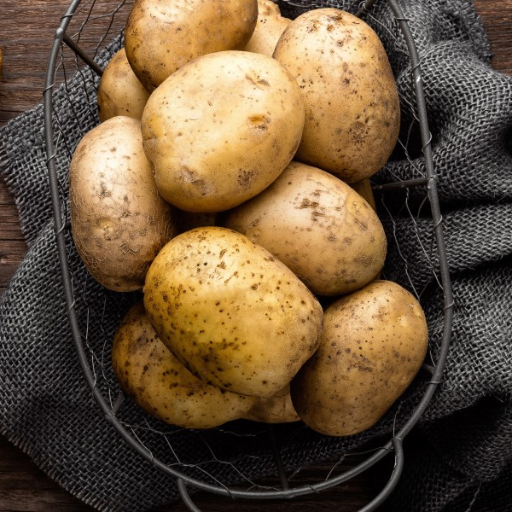
In the case that your cat has eaten a raw potato, it is best to watch closely for any unusual behaviors such as vomiting, diarrhea, lethargy, or anorexia. Solanine, a toxic substance, is contained in raw potatoes. If any of the aforementioned symptoms arise or you are unsure about the quantity consumed, do not hesitate to reach out to your veterinarian for assistance. Remember, do not try to handle your cat’s health issues without professional guidance.
How to Identify Signs of Potato Poisoning in Cats
There are various symptoms of potato poisoning in cats that can come in addition to the amount of raw potato and its green parts and the cat has ingested. The symptoms to monitor will include vomiting, diarrhea, excessive drooling, stomach cramps, and loss of appetite. Cats can become sluggish, weak, breathe shallow and weak during more severe cases. Other severe symptoms may include shaking, brain fog, and seizures, all of which are related to extreme cases of solanine poisoning stemming from severe toxicity.
As for veterinary resources, solanine is found predominantly in the skins of potatoes, as well as in the stems and leaves. Since cats have a lower body size and a poor capacity metabolizing solanine, even minimal exposure is harmful. Depending on the severity, cases left untreated pose risks of long-term health alterations, or in rare scenarios, death. Seek immediate veterinarian attention for your cat to safely prevent these uncontrollable situations.
Immediate Steps to Take
If you believe your cat to be suffering from solanine poisoning, acting right away is crucial. In this case, follow the guide below for the best chances.
- Symptoms – Be on the lookout for any signs of solanine poisoning such as vomiting, diarrhea, lethargy, confusion, excessive drooling, tumbling, twitching, and in some severe scenarios, seizures. The timeframe and intensity for these symptoms greatly depend on the amount of solanine up to ingestion.
- Reach Out to Your Vet – It’s critical to reach out to a vet or an emergency animal poison helpline at your earliest convenience. Sharing information like the timings and quantity of the potato product ingested will better assist your veterinarian come up with a tailor made solution for your pet.
- Refrain from Forcing Your Pet To Vomit – Forcing your pet to vomit will only make things far worse without professional help from the vet. Some substances might do more harm than good during the process of being vomited.
How to Properly Introduce Potatoes into Your Cat’s Diet?

- Use Plain, Cooked Potatoes – Only plain, fully cooked potatoes without any seasonings like butter, salt, or spices should be offered, as these can be harmful to cats.
- Serve in Small Portions – Begin with a small amount to monitor the cat’s reaction and to ensure it is well tolerated.
- Occasional Treat Only – Potatoes are only to be provided as an infrequent treat and must not under any circumstances replace the cat’s regular protein-rich diet.
- Consult Your Veterinarian – Check with your veterinarian first before changing your cat’s diet to see if the new food is safe.
Feeding Potatoes as an Occasional Treat
If prepared right, potatoes can be enjoyable and safe for your cat as an occasional treat. It is crucial to ensure that the potatoes are cooked thoroughly, unseasoned, and free of harmful ingredients. Recent data suggests that raw or green potatoes contain solanine which is toxic and can cause minor to major digestive issues in cats. For this reason, only cooked, unseasoned potatoes should be given.
Studies show that cats receive little nutritional value from cooked potatoes because they primarily require protein, not carbs. For comparison, a cat’s diet should contain roughly 52% protein, 36% fat, and approximately 12% carbs. Though potatoes contain carbs, they can easily lead to weight gain in cats or derail a well-balanced diet.
Potatoes should not be fed to cats during mealtimes, but rather as an occasional treat and offered in very limited amounts. For a cat of average size, one teaspoon of plain cooked potato meets the serving size. It is important to watch your cat after feeding for any signs of intolerance or negative reactions—especially with new foods. A gentle approach coupled with a vet consultation enables a smooth potato introduction and safeguards optimal health for your cat.
How to Best Prep Potatoes for Cats
Following some rules is important when preparing potatoes for cats to ensure they do not pose any dangers. Firstly, avoid using any form of potato with butter, salt, oil or seasoning as these are harmful to cats- using plain cooked potatoes is best. Boiling and steaming are better methods as they do not incorporate fats and other unhealthy components like fryings do. Care should also be taken with sweet potatoes as they contain natural sugars which aren’t great for cats.
Current research suggests that potatoes have some vitamins like vitamin C and B6, potassium, and fiber. Cats do not need that food because they are obligate carnivores-needing to eat only animal based proteins and fats. A teaspoon of cooked potato provides 4 calories which translates to 10% of what the cat should be having per day. Excess feeding can result in gastrointestinal distress or malnutrition leading to many health problems.
As a reminder, the glycoalkaloids, solanine, found in green or raw potatoes is toxic to cats and can cause vomiting, diarrhea, lethargy, or even more severe symptoms. Ensure that all potatoes given are thoroughly cooked and served in very small portions. When it comes to your cat’s health, it is always safer to speak with your veterinarian prior to making any dietary changes.
Understanding Cats’ Dietary Needs and Potatoes

Cats may consume fully cooked plain potatoes, but only as an infrequent treat and in small amounts. Potatoes that are green or raw should never be consumed as they are toxic. If you have any doubts, your veterinarian should be consulted before feeding your cat any form of potatoes.
Why Cats Are Obligate Carnivores
Cats are placed into the obligate carnivore category as they need to extract vital nutrients from their bodies through animal protein. Cats, unlike omnivores and herbivores, depend on taurine, arachidonic acid, and even vitamin A which is only sourced from animal bodies. Experts in veterinary science confirm that a cat’s diet lacking taurine will develop serious health complications like heart diseases and blindness.
A study found that a cat’s digestive system is highly evolved to efficiently process animal-based proteins and low carbohydrate foods. Cats lack many essential plant-digesting enzymes. Amylase, an enzyme that helps break down carbohydrates, is present in very low amounts in cats. Because of this, plant proteins and carbohydrates make for a poor replacement for their dietary needs.
Another source states that cats cannot extract nutrients from plants as they are biologically adapted to thrive on protein, specifically animal-based proteins. A cat owner should support species-appropriate nutrition for their cats so they can live a longer, healthier life. Consult a veterinarian if you’re considering a dietary change.
The Role of Carbohydrates in a Cat’s Diet
Cats are obligate carnivores, meaning their bodies are biologically adapted to thrive on a diet composed of soft tissues and low carbohydrates. They are not as adept at metabolizing carbohydrates as humans and dogs are. Research suggests that this macronutrient does not exceed 12% of a cat’s daily caloric intake to mitigate obesity, fluctuating insulin levels, and other potential health problems such as diabetes.
Studies have shown that many commercial cat foods include grains, leading to excessive carbohydrate levels. For instance, some dry cat foods contain up to 40% carbohydrates which is biologically inappropriate for a feline’s diet. This underscores the necessity of making label comparisons and selecting foods with more protein and fewer carbs. It should also be noted that obesity and other diet-related diseases are associated with high carbohydrate intake reinforcing the notion that a diet suited to a species is foundational to good health.
Veterinarians and AAFCO Guidelines provide valuable information on how to best feed your pet. Observing how your cat responds to diet changes while scheduling regular check ups will help achieve a balanced and healthier lifestyle for them.
Substitutes for Potatoes in Cat Food
Cats are considerd obligate carnivores, which means their diet needs to consist mostly of meat. Cats do not require potatoes in their diet, but they can have peas, chickpeas and sweet potatoes as a substitute. These options suit cats and give carbohydrates as well as fiber in moderation. Make sure to provide animal protein as the main ingredient and consult a veterinarian for any alternative food options.
Reference sources
- Cornell Feline Health Center – Food Allergies – A resource from Cornell University discussing feline food allergies.
- Tufts University – Research Update: New Insight into Grain-Free Cat Diets – This article explores grain-free cat diets, including the use of potatoes as a carbohydrate source.
- Tufts University – The Role of Carbohydrate in Pet Foods – Discusses the role of carbohydrates, including potatoes, in pet foods.
Frequently Asked Questions (FAQs)
Q: Can cats eat potatoes safely?
A: Cats can safely consume potatoes, but only in small offers and if suitably prepared. Moreover, potatoes do not offer sufficient nutritional value for cats and thus should not be a staple in their meals.
Q: Is it okay if cats eat raw potatoes?
A: No, cats should not be fed raw potatoes because they contain solanine, a compound that is poisonous to cats and may lead to vomiting and diarrhea.
Q: Are potatoes good for cats?
A: Potatoes don’t offer anything of great value to cats. While they are not toxic to cats, cooked potatoes offer no nutritional value. In fact, cats will find it hard to digest the high carbohydrate content in potatoes.
Q: How should I feed your cat potatoes?
A: Should you choose to feed potatoes to your cat, ensure that they are boiled and served chilled devoid of any seasoning in very scant quantities—for instance, a tablespoon sans skin.
Q: What types of potatoes are safe for cats?
A: All varieties, including russet potatoes, are safe for cats as long as they are properly cooked and served without butter, oil, or any seasonings.
Q: Are potato chips safe for cats?
A: No, potato chips are not safe for cats as they are too salty and fatty.
Q: Why do some cats show interest in potatoes?
A: Cats may show interest in potatoes out of curiosity, but that does not mean it is a good idea to leave them accessible all the time. It is best to keep an eye on your cat’s interest and limit the offer of non-standard nourishment.
Q: Can feeding potatoes to cats replace part of a balanced diet?
A: No, feeding cats potatoes does not decrease the need for animal proteins from meats or commercial cat food.
Q: What should I do if my cat ate a bite of potato?
A: If your cat consumed a small amount of cooked potato, they should be okay. However, if they ate raw potato or show any symptoms of concern, seek veterinary assistance immediately.


